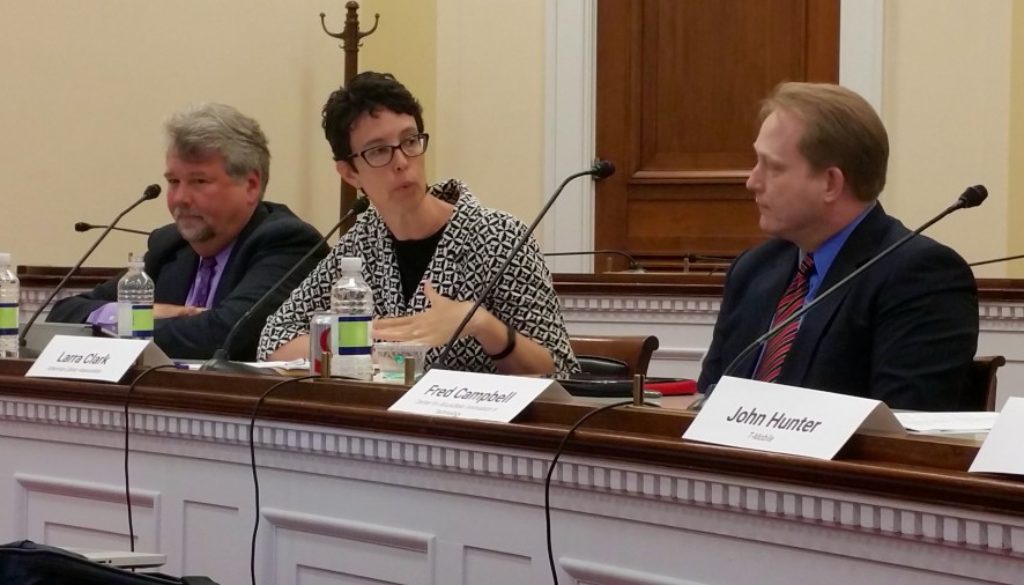Listen to Audio
Download Audio
Flickr
Date: Friday, September 25
Follow: @NetCaucusAC | #WiFiJunk
Details:
Join us for a discussion on the history of WiFi and the role it plays in everyone’s mobile data usage. Our panel will explain how clever engineers developed WiFi in a backwater band of spectrum that the FCC set aside in the 80’s for “junk” common household appliances like cordless phones, microwave ovens, garage door openers and baby monitors. This junk band was unique in that the FCC did not require an application to use the spectrum nor did it require a license (i.e. unlicensed). This “permissionless” use of the spectrum was completely different from the government’s traditional top-down spectrum allocation and assigned use method. When bandwidth-hungry smartphones were introduced WiFi provided a critical spigot to offload data from the traditional mobile networks. That trend continues today. The viral success of WiFi on the unlicensed junk band showed the FCC a new way to approach spectrum allocation which it has been implementing for several years. Our panel will finish with a discussion of upcoming FCC spectrum initiatives including a short conversation of the opportunities and challenges facing FCC unlicensed spectrum including uncertainties surrounding proposed deployment of LTE-U.
Speakers:
- Paula Boyd, Director, Government and Regulatory Affairs, Microsoft (bio)
- Fred Campbell, Executive Director, Center for Boundless Innovation in Technology, moderator (bio)
- Larra Clark, Office for Information Technology Policy, American Library Association (bio)
- John Hunter, Director, Spectrum Policy, T-Mobile (bio)
- David Young, Vice President, Public Policy, Verizon (bio)
This widely attended educational briefing is hosted by the Congressional Internet Caucus Advisory Committee (ICAC), part of a 501(c)(3) charitable organization. Congressional staff and members of the press welcome. The ICAC is a private sector organization comprised of public interest groups, trade associations, non-profits, and corporations. The ICAC takes no positions on legislation or regulation. Rather, it’s a neutral platform where thought leaders debate important technology issues that shape legislative and administration policy in an open forum. We vigilantly adhere to our mission to curate balanced and dynamic debates among Internet stakeholders. Our volunteer board members ensure that we dutifully execute that mission. More information on the ICAC is available at iefcaucushost.staging.wpengine.com.

